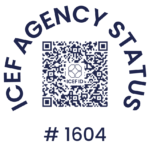As today’s global financial landscape evolves more rapidly than ever, it’s vital to stay ahead of the curve. Our expert academics have specially designed this course to help you achieve this and so much more. From future-proof risk management to financial data interpretation, we’ll equip you with the knowledge and skills necessary to excel in international finance.
Rooted in academic excellence and delivered by the triple-accredited King’s Business School, this programme offers a unique blend of theoretical methodologies grounded in real-world practice. As a graduate, you’ll unlock exciting new leadership positions, from asset management and finance consultancy to derivatives analyst and compliance officer roles.
Are you ready to take on the challenge? Join our course and take your career to the next level.








